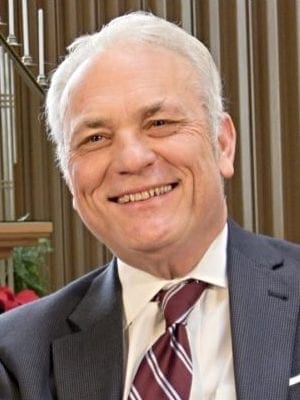Anyone who has been around Baptist preachers very long knows that the old simile about us being like manure is embarrassingly true: spread us around and we do a little good, but get us all together and we stink to the high heavens.
So, like many, I came to the New Baptist Covenant meeting week before last with more than a little pessimism about its prospects to advance something either new or covenantal among our diverse Baptist family.
Could anything good come out of a meeting planned and led by us preachers? And, God forbid, politicians?
My generation has experienced in Baptist collectives mainly breakdown, disorder and dissolution. I wanted high hopes, but experience trumped aspiration. (See my sobered analysis.)
I went. I saw. I was wrong.
People showed up by the thousands. Black people and white people. Old people and young people. People of diverse denominations and theologies. All convened in the sweet unity that only the Spirit of Christ can pull off.
The preachers made their announcements under the prophetic mantle of the Lord. The politicians left their windy pontifications at home, and remembered with appropriate humility their calling as servants. President Carter’s moral authority set and sustained a high tone throughout. The biblical vision of love and justice so brilliantly outlined by Jesus in Luke 4 was proclaimed with clarity. The Lord was lifted up and the people of God edified.
And Baptists found their voice again.
Now, we all are pondering the question, where do we go from here? Seizing the momentum from last week’s gathering, President Carter has wisely scheduled a meeting in March to deliberate our future direction.
But, it seems to me that, before we answer that question, we need to stay reflectively– with an attitude of exploration and a posture of repentance– in some other very basic and transformative questions:
Are we ready for a unified multiracial organizational entity among Baptists? Will we enter into personal and congregational cross-racial partnerships that are substantive and egalitarian? Are we willing to make the necessary changes to build multicultural fellowship in our local churches?
To be more pointed, will traditionally white structures submit to the spiritual authority of traditionally black organizations? Are we willing to call pastoral leaders to our churches who incarnate the ethnicity of persons not presently represented in our congregations?
How do we transfer leadership responsibility from an older to a younger generational profile? Will we embrace, like Israel embraced young David, leadership that is not bound to a rigid, older age notion of maturity?
Are we confident before God that we do not secretly desire some vain regression to a denominational glory and hegemony that is forever ”and blessedly– gone? Do we, contrary to Paul’s vision for generational change that he cast for his young protégé Timothy, allow the condescending dismissal and marginalization of our youthful pastors?
Do our churches and denominational institutions have carefully constructed leadership succession plans? Have we properly affirmed leaders in their 70s and 80s for their significant life achievements in building God’s Kingdom so that they may retire with dignity and gratification?
Will we submit to the pastoral leadership of women? Will we repent of our disobedience before God in refusing to entrust our pulpits to the women God has called to announce the Good News? Do we really trust Christ enough to call as our pastors the very women we have trained in our seminaries to prepare for the preaching ministry? Are we willing to adjust our notions of local church autonomy so that we will actively recommend and advocate women to the churches as prospective pastors? Quite specifically, can we accept in our heart a woman as our pastor? Will women play an active role in planning and executing the next New Baptist Covenant meeting?
How we answer these questions will determine, in words oft-spoken from the platform in Atlanta, whether the New Baptist Covenant will settle only for a momentary meeting or launch the beginning of a momentous new movement.
A group of believers, gathered for a meeting in big world capital a long time ago, faced these same questions. They decided that their new covenant would be inclusive and empowering with regard to generation, race, and gender. They started something that Pentecostal is a word for.
We can too.
Charles Foster Johnson is visiting instructor of preaching at McAfee School of Theology.
Charles Foster Johnson is pastor of Bread in Fort Worth, Texas, and founder and executive director of Pastors for Children, a nationwide network of faith leaders mobilized for public education ministry and advocacy.

